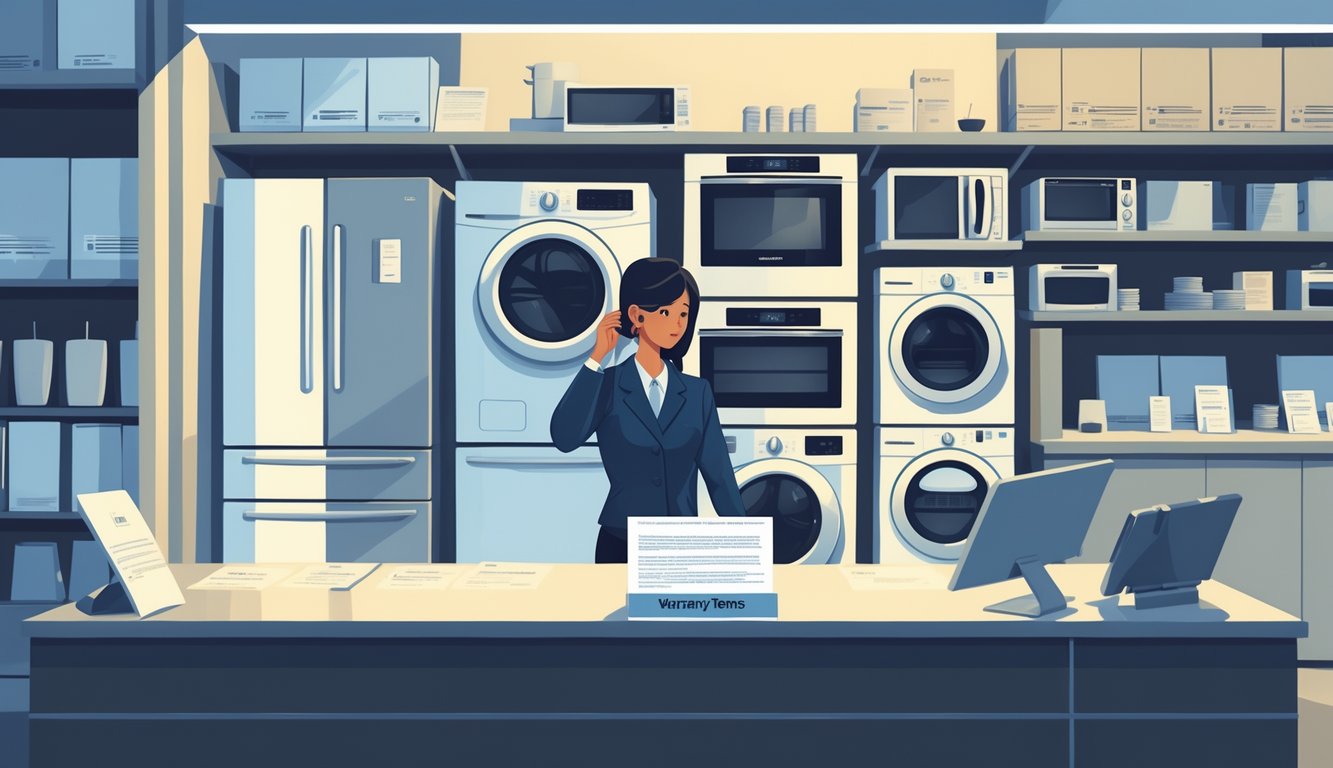
When Is a Warranty Voided?
Halfway through a call about my oven not heating, I get told my warranty is void because I used a “nonstandard” power cable? I bought it from the store! Apparently “installer error” isn’t covered. The loopholes are endless, and nobody at the store warns you.
Improper Installation and Commercial Use
Forget the pretty manuals. If anyone but a manufacturer-certified tech touches anything—cords, vents, wall outlets—you might lose your rights instantly. My neighbor moved her dishwasher to her café, used it a few times, and—boom—“limited warranty” meant nothing. Big brands (GE, LG, Samsung, whatever) just say “improper use—void.”
Self-installs are a minefield. Miss one anti-tip bracket (it’s real, look it up), and warranty’s gone. The Magnuson-Moss Warranty Act says they can’t force you to use their parts unless they give them to you free, but manufacturers still sneak in loopholes: “recommended” installers, exact voltages, brand-only hoses. Miss a step, they call it negligence, and every warranty I’ve read has some version of this hiding in the fine print.
Impacts of Natural Disasters and Normal Wear and Tear
Lightning, flooding, ants crawling inside your circuit board (seriously, my buddy’s dishwasher shorted out from ants—how is that a thing?)—not covered. Not ever. All those appliance giants—Whirlpool, Bosch, Maytag—love to slap “acts of God” in the exclusions section, usually right after “don’t use it wrong.” I swear, if you so much as look at the fine print, “environmental exposure” is always their get-out-of-jail card. Power surges, dust storms, freak freezes? They’ll shrug and say, “not our problem.”
And then there’s “normal wear and tear.” Oh, the rage. Every little rattle, that faded ‘start’ button, the dial you can’t read anymore—they call it “expected.” I found a Consumer Reports line (May 2023) that flat-out says, cosmetic damage or gradual decline? Nope, not covered. So when your fridge handle cracks because you opened it one-handed (guilty), or the hinge squeaks after a year, or the icons fade off, the repair guy will just say, “cosmetic, sorry,” and move on. You squint at your washer trying to guess the cycle, but legally, that’s “expected deterioration.” No help coming.
My microwave’s display went half-blind during a heatwave, and the call-center lady just kept repeating, “environmental factors aren’t covered.” Like, who decides what “normal” even is? Sometimes I think they’re making it up as they go.
Legal Protections for Appliance Buyers
Ever tried arguing about a blinking dishwasher light with a store manager? The warranty language is like some cryptic spell. “Limited warranty” is just code for “we’ll find a loophole.” I mean, there are laws, if you dig deep enough.
Magnuson-Moss Warranty Act Overview
So, there’s this law—Magnuson-Moss Warranty Act, 1975. I swear, nobody at the store has ever mentioned it. Doesn’t force companies to offer a warranty, but if they do, they’re supposed to spell out what’s covered. The rules are so weirdly specific—if the product’s over $10, the warranty has to be “clear” and “plain,” whatever that means. Do stores actually do this? I’ve seen warranties for GE fridges, Samsung washers, even a toaster, buried in the “terms of sale,” and the salespeople just breeze right past it.
I asked a lawyer—real person, not just Reddit—and apparently you can sue if they ignore the warranty or try to dodge responsibility. But if they stick a disclaimer in size 6 font before you buy, courts might still side with them. The whole “implied warranty” thing? Supposedly every retailer stands behind basic functionality unless they loudly say otherwise. Usually that’s hidden behind a hyperlink. Why is it always a hyperlink? Who’s clicking those?
State Lemon Laws and Breach of Warranty
Don’t expect anyone at a chain store to know this, but state lemon laws actually cover appliances—some states go hard, like California, where after “reasonable” failed repairs, you can get a replacement or refund. “Reasonable” means… whatever they want, apparently. Sometimes it’s two failed repairs, sometimes it’s endless months lost in court. And honestly, most states still think “lemon law” means cars.
Had a client—let’s call her Deb—whose oven charred toast on the lowest setting. Store told her, “call the manufacturer.” After the third failed repair, state law kicked in and she got a new oven. Not every state is that helpful, but most let you sue for repairs or a refund if your stuff isn’t “merchantable.” That phrase “fit for ordinary use” pops up everywhere. But sellers love to slap time limits on implied warranties, so check the receipt, check the confirmation email, squint for anything in microscopic print. Most of the time, you don’t find out until you’re already mad.
Tips for Ensuring Strong Warranty Protection
Everything always sounds easy at the store, right? But then, somehow, the “warranty protection” you thought you had just vanishes. Every retailer has their own definition of “coverage,” and you’re left with the world’s worst puzzle, piecing together what’s actually included—usually too late.
How to Read and Compare Warranty Terms
No one hands you a magnifying glass with those cheery pamphlets. Skimming? Bad idea. The coverage tables in those booklets are like reading tax instructions. I still remember the sales guy swearing the compressor was covered—missed the footnote: “parts only, no labor after 90 days.” Not bolded. Not even close. Comparing brands side by side always brings up nasty surprises: “Accidental damage not covered,” “owner maintenance voids warranty,” “must schedule service within 14 days.” Why so many traps?
Legalese matters—exclusions, “warranty periods,” all that. None of it’s standard. Sometimes coverage just ends if you move the thing or forget to mail in a postcard. Consumer Reports did a whole piece in 2023 about how vague warranty language hid coverage gaps in over 60% of fridges they checked. If I see “warranty does not apply if used commercially” one more time, I might just toss the manual.
Understanding Duration of Coverage
Those big “10-year warranty!” stickers? Don’t believe them. GE’s “10-year” warranty? Year one: everything. Years 2–10: just a single part, and only if you’re the original buyer with every receipt since day one. My neighbor thought “lifetime” meant her dishwasher was immortal. Turns out, “lifetime” meant seven years, and if you move, coverage dies instantly.
Honestly, just make a table. Last time I compared brands, I scribbled this:
| Brand | Compressor | Parts | Labor | Notes |
|---|---|---|---|---|
| Whirlpool | 10 yrs | Yes | 1 yr | Must register within 30 days |
| GE | 10 yrs | Yes | 1 yr | Proof of purchase required |
| LG | 10 yrs | Yes | 1 yr | No surges covered |
Even “duration” is a moving target. Coverage can shrink if you’re not the first owner, if you had a repair, or even based on which store you used. One repair tech told me, “Always check: does the brand require their own techs?” A friend lost two years of coverage for using a random shop. Warranty company just laughed.



